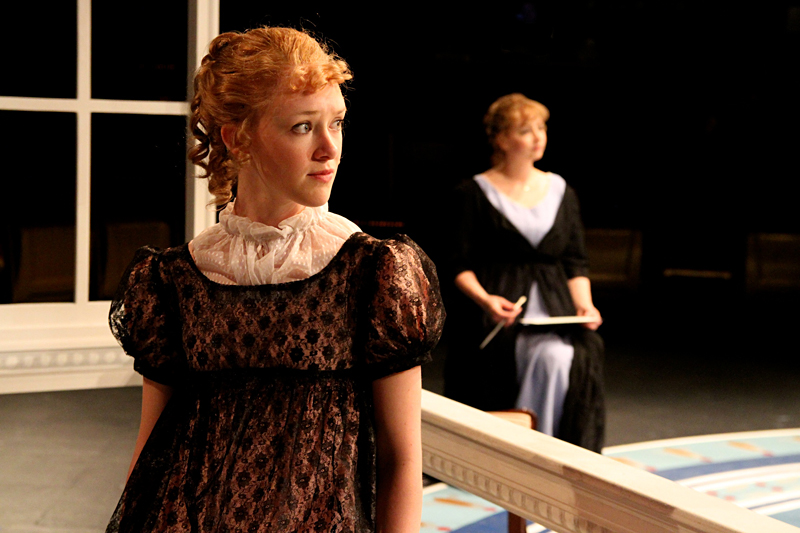Book-It’s Sense and Sensibility comes along just in time to refute V.S. Naipaul’s ridiculous public dismissal, only last week, of—well, of all female writers anywhere ever, but in particular of Jane Austen and “her sentimental ambitions” and her “narrow view of the world.” Austen is by turns a satirist, an idealist, an ironist, and a realist so stark on the subjects of women and money that it’s long exposed her to accusations of snobbery. One thing she’s not is sentimental. (The charge of narrowness makes little sense as a criticism: The very act of making an artwork is, most fundamentally, a narrowing, deciding what and what not to include.)
S&S, in fact, is a cautionary tale of the dangers of oversusceptibility to sentiment. Two sisters, self-possessed Elinor and self-dramatizing Marianne, negotiate misunderstandings, rivals, and other social pitfalls on their paths to the altar. Unreflective Marianne gets the worst of it. Jessica Martin plays her with an affecting grasp of the role’s pathos, easing up on the rigid judginess that can make the character, as Austen wrote her, a bit of a pill. Kjerstine Anderson movingly exhibits Elinor’s struggle to live up to the task of being the stable center around which everyone else revolves, a job she never asked for.
Aside from the comic caricatures, Austen’s male characters can be hard to get a handle on, especially Edward, Elinor’s b.f., whose most conspicuous quality is benignity. Jason Marr, skillfully making passivity both charming and funny, more than holds his own among the other more broadly drawn men onstage. Also outstanding among the rich ensemble cast are Emily Grogan, amazing in two widely contrasting roles (the icy calculation of Fanny Dashwood and the perpetual-motion chipperness of Charlotte Palmer), and Samantha Leeds (as Elinor and Marianne’s tween sister Margaret, made much more memorable than in the novel).
Though a few of Austen’s juiciest jokes are omitted, adapter Jen Taylor has neatly streamlined the involved plot, directed by Makaela Pollock. Also keeping the story moving forward is scenic designer Pete Rush’s fluent use of curtains, deployed by the cast as stage dividers and scene-changers.







